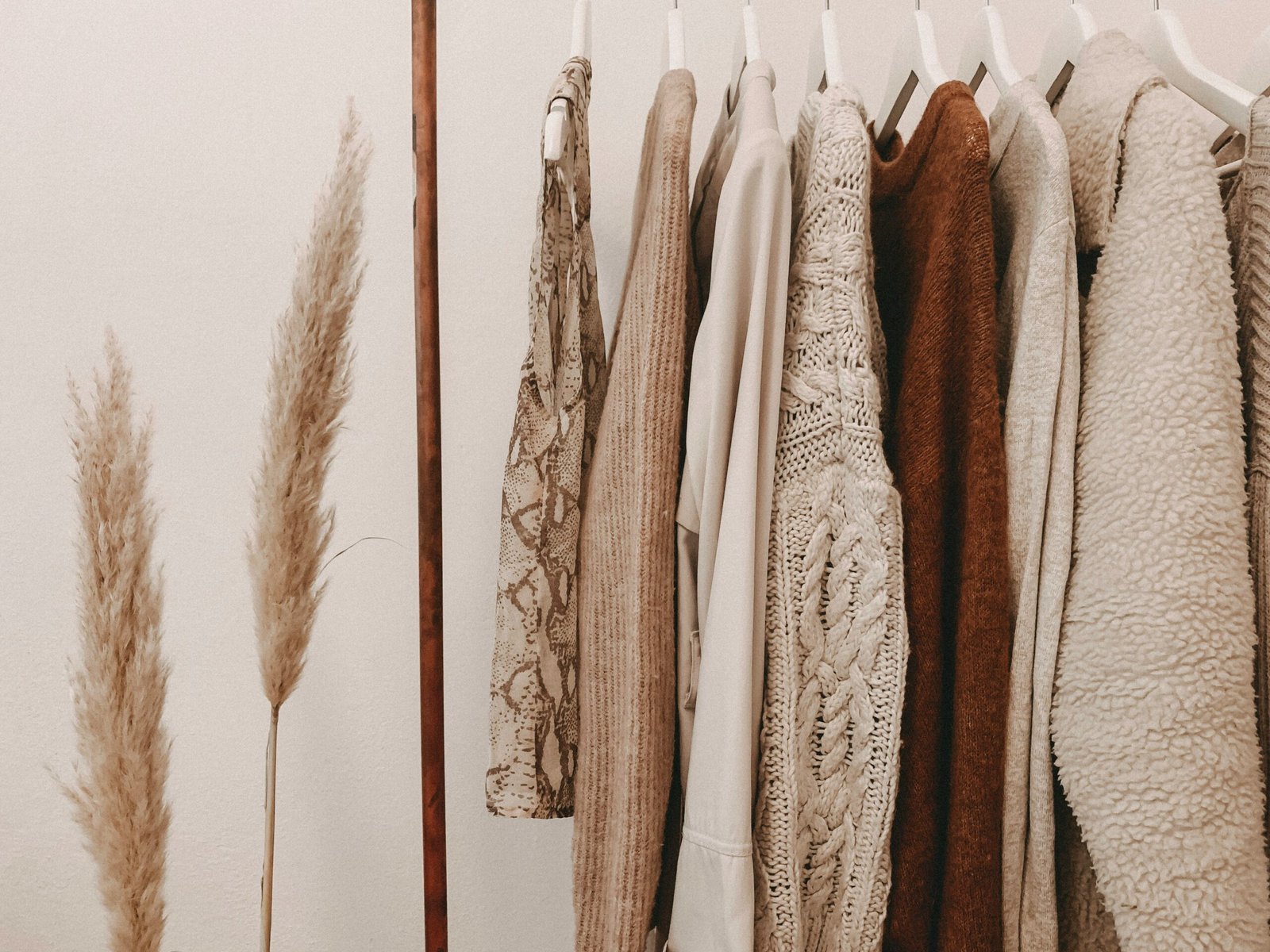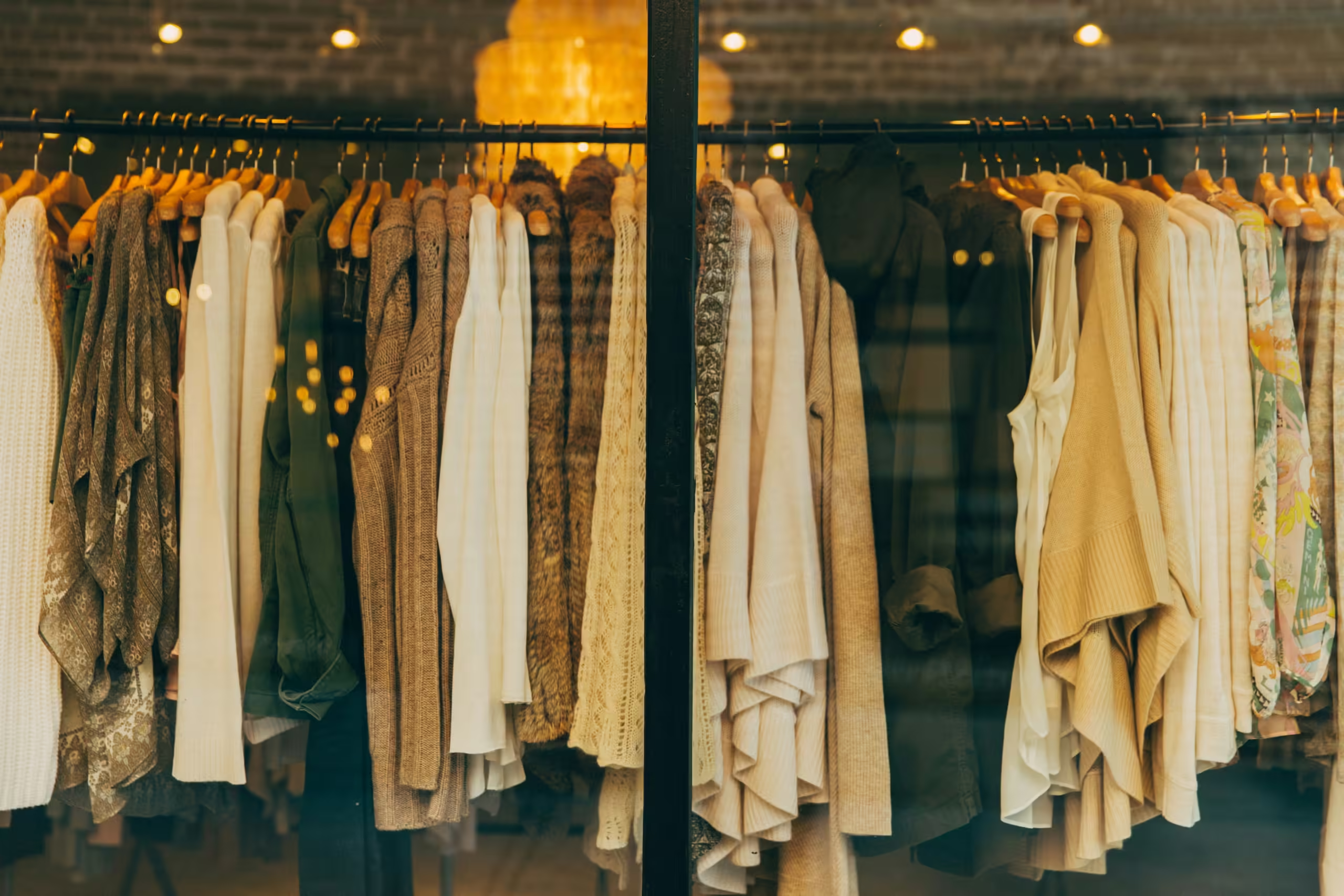Ethical Accessorizing: Finding Fair Trade Jewelry and Bags
In recent years, the concept of ethical accessorizing has gained significant traction within the fashion industry. Ethical accessorizing refers to the practice of choosing jewelry, bags, and other accessories that are produced in ways that are socially responsible and environmentally sustainable. This involves prioritizing fair trade, sustainable fashion, and ethical fashion principles in the production and purchase of these items.
Fair trade is a key term in this context, signifying a trading partnership that seeks greater equity in international trade by offering better trading conditions and securing the rights of marginalized producers and workers. Sustainable fashion, on the other hand, focuses on creating garments and accessories that have a minimal environmental impact throughout their lifecycle. Ethical fashion encompasses both these terms and extends to ensuring that every aspect of the production process, from sourcing materials to manufacturing, is conducted ethically and sustainably.
The growing consumer demand for ethically sourced products is a testament to an increasing awareness of the adverse effects of fast fashion. Fast fashion, characterized by rapid production of high volumes of clothing and accessories at low cost, often leads to significant environmental degradation and poor labor conditions in developing countries. The production processes typically involve the use of harmful chemicals, excessive water consumption, and substantial waste generation, contributing to pollution and resource depletion.
Furthermore, labor conditions in fast fashion supply chains are frequently exploitative, with workers enduring long hours, low wages, and unsafe working environments. In contrast, ethical accessorizing promotes practices that uplift workers, ensuring they receive fair wages and work in safe conditions. By choosing fair trade and sustainable accessories, consumers can make a positive impact on both the environment and the lives of workers in the fashion industry.
The shift towards ethical accessorizing is not just a trend but a necessary evolution for a more sustainable and just fashion industry. As more consumers become conscious of their purchasing power, the demand for ethically produced jewelry and bags will continue to rise, driving further positive change in the industry.
Understanding Fair Trade Jewelry
Fair trade jewelry represents a commitment to sustainability and ethical practices, ensuring that the creation process respects both people and the planet. The core principle of fair trade jewelry is to promote equitable trade relationships, which are reflected through various standards and certifications. Two significant certifications in this realm are Fairtrade Gold and Fairmined. These certifications guarantee that the gold used in jewelry has been sourced responsibly, with attention to fair wages and safe working conditions for miners, as well as environmental preservation.
Materials play a crucial role in the sustainability of fair trade jewelry. Commonly, these pieces feature recycled metals, which reduce the demand for newly mined materials and minimize environmental impact. Additionally, ethically sourced gemstones are integral to fair trade jewelry. These gems are mined under conditions that uphold human rights and environmental stewardship, ensuring that the communities involved benefit from the trade.
Several brands have made strides in offering fair trade jewelry, significantly impacting the lives of artisans and miners. For instance, brands like Pippa Small and SOKO are renowned for their ethical practices. Pippa Small collaborates with local artisans in conflict-affected areas, providing them with sustainable livelihoods while preserving traditional craftsmanship. SOKO, on the other hand, leverages technology to connect marginalized artisans with global markets, ensuring fair compensation and fostering economic development.
The impact of these brands extends beyond individual artisans to the broader communities. By prioritizing fair wages, safe working conditions, and environmental sustainability, fair trade jewelry brands contribute to the well-being and resilience of entire regions. This holistic approach not only enhances the quality of life for those directly involved but also promotes a more sustainable and ethical global jewelry industry.
Exploring Fair Trade Bags
Fair trade bags are not just fashionable accessories; they embody a commitment to ethical practices and sustainability. The criteria for fair trade bags are stringent, ensuring that each piece is produced under conditions that respect both the artisans and the environment. Key among these criteria is the assurance of fair wages. Artisans are compensated justly for their craftsmanship, which helps elevate their standard of living and supports local economies.
Additionally, the production of fair trade bags prioritizes safe working conditions. This includes providing a secure workplace free from exploitation and hazardous practices. These ethical principles extend to the use of environmentally sustainable materials. Fair trade bags often incorporate organic, recycled, or sustainably sourced materials, minimizing environmental impact and promoting eco-friendly practices.
A variety of fair trade bags are available to suit different needs and styles. From elegant handbags to functional backpacks, there is a diverse range of options. Handbags can be found in numerous designs, including totes, clutches, and crossbody styles, all crafted with meticulous attention to detail. Backpacks, on the other hand, offer practical solutions for everyday use or travel, often featuring durable and eco-conscious materials.
Choosing fair trade bags brings multiple benefits. By supporting fair trade, consumers help artisans gain access to global markets, allowing them to maintain their traditional crafts while earning a sustainable income. Moreover, fair trade practices contribute significantly to reducing environmental footprints by promoting the use of sustainable materials and ethical production methods.
Several popular brands and artisans are renowned for their commitment to fair trade principles in bag production. Brands like Sseko Designs and Ten Thousand Villages offer a wide array of fair trade bags that combine style with sustainability. Artisans from various regions, including Latin America, Africa, and Asia, showcase their unique cultural heritage through these ethically made products, providing consumers with beautiful, one-of-a-kind accessories.
How to Identify Fair Trade Products
Identifying fair trade accessories such as jewelry and bags involves recognizing specific certifications and conducting thorough research. One of the most reliable ways to ensure a product adheres to fair trade principles is to look for recognizable certifications. Among the most prominent are the Fair Trade Certified label and the World Fair Trade Organization (WFTO) mark. These certifications guarantee that the product was produced under conditions that promote sustainability, fair wages, and ethical labor practices.
Moreover, it’s crucial to research the brands you are interested in. Trustworthy companies often provide detailed information about their supply chains and the ethical standards they uphold. Many brands have dedicated sections on their websites explaining their commitment to fair trade and sustainability. They may also outline their relationships with artisans and the communities they support.
When shopping, take the time to read labels carefully. Labels can offer a wealth of information about the materials used, the production process, and the origin of the product. If the label is vague or lacks information, don’t hesitate to ask questions. Engaging with sellers or customer service representatives can provide further insights into whether the products meet fair trade criteria.
Several online resources can assist in verifying the ethical standards of your purchases. Websites like Fair Trade Federation and Ethical Consumer offer directories and reviews of companies committed to fair trade practices. Additionally, platforms such as Good On You provide ratings and information on how different brands perform in terms of sustainability and ethics.
By utilizing these tips and resources, consumers can make more informed decisions, ensuring their accessory purchases support fair labor practices and contribute to a more sustainable and equitable global market.
The Impact of Ethical Accessorizing on Communities
Ethical accessorizing has profound and far-reaching impacts on artisan communities worldwide. By choosing fair trade jewelry and bags, consumers directly contribute to the well-being and sustainability of these communities. Fair trade practices ensure that artisans receive fair wages, which significantly enhances their financial stability. This stability enables artisans to invest in education, healthcare, and other essential needs, fostering a higher quality of life.
A shining example of the positive effects of ethical accessorizing can be seen in the cooperative of women weavers in Oaxaca, Mexico. This community has thrived due to the fair trade model, which has allowed them to preserve their traditional weaving techniques. These crafts, passed down through generations, are now appreciated globally, ensuring that the cultural heritage remains intact and vibrant.
Similarly, in the small village of Bagru in India, fair trade practices have revitalized the local block-printing industry. Artisans here have not only gained financial independence but have also witnessed a resurgence of their craft. Fair trade has opened up international markets for their products, enabling them to share their rich cultural heritage with a global audience. This has led to an increase in demand for their unique, sustainable products, thereby creating more job opportunities within the community.
The broader social and economic benefits of supporting fair trade are equally significant. By opting for ethically made accessories, consumers help combat poverty, reduce inequality, and promote sustainable development. Each purchase is a step towards a more equitable world, where artisans are empowered to be self-reliant and their communities can flourish. Ethical accessorizing also encourages environmentally sustainable practices, as many fair trade products are crafted using eco-friendly materials and methods.
Ultimately, the impact of ethical accessorizing extends beyond individual communities, contributing to a global movement towards sustainability and social justice. By supporting fair trade, consumers play an essential role in fostering a more inclusive and sustainable global economy.
Fashion and Sustainability: A Perfect Match
The intersection of fashion and sustainability is becoming increasingly prominent in today’s conscientious market. Ethical accessorizing, which encompasses the use of fair trade jewelry and bags, is a significant part of this trend. By opting for fair trade accessories, consumers are contributing to a more sustainable fashion ecosystem. These choices help reduce pollution and waste, addressing some of the industry’s most pressing environmental challenges.
One of the primary benefits of choosing fair trade accessories is the reduction in environmental impact. Fair trade production processes often involve sustainable practices, such as using eco-friendly materials and minimizing waste. This not only lessens the carbon footprint of fashion items but also ensures that fewer toxic chemicals are released into the environment. Additionally, fair trade products are typically crafted with longevity in mind, promoting a circular fashion economy. In this model, accessories are designed to last longer, be reused, or recycled, significantly reducing the need for constant production.
The importance of a circular fashion economy cannot be overstated. Unlike the traditional linear model of ‘take, make, dispose’, a circular economy emphasizes resource efficiency and sustainability. By supporting fair trade and sustainable brands, consumers contribute to this shift, encouraging the fashion industry to prioritize quality over quantity. This not only preserves natural resources but also fosters a more ethical and environmentally responsible production cycle.
Current trends in sustainable fashion show a growing interest in transparency and ethical standards. Consumers are increasingly seeking out brands that offer visibility into their production practices and the origins of their materials. This trend aligns with the broader movement towards sustainability, where informed choices lead to more responsible consumption. Incorporating sustainable fashion into wardrobes can be as simple as choosing fair trade accessories, supporting brands with sustainable practices, and opting for timeless pieces over fast fashion trends. By doing so, consumers can enjoy stylish, high-quality items while making a positive impact on the planet.
Challenges and Solutions in Ethical Accessorizing
Ethical accessorizing presents a multitude of challenges for both consumers and brands. One of the primary obstacles is the higher cost associated with fair trade jewelry and bags. Ethical production processes, fair wages, and environmentally sustainable materials often result in increased prices. This can deter consumers who are price-sensitive or unaware of the benefits of investing in ethically made products. Brands, meanwhile, struggle to balance profitability with ethical practices, making it challenging to compete with fast fashion alternatives.
Another significant issue is the limited availability of ethically produced accessories. While the demand for sustainably made products is growing, the supply chain for ethical materials and fair trade-certified goods remains comparatively small. This limited availability makes it difficult for consumers to find and purchase ethically made items and for brands to source sustainable materials consistently.
Greenwashing, the practice of misleading consumers about the environmental benefits of a product or company practices, further complicates ethical accessorizing. Many brands claim to be sustainable or ethical without adhering to rigorous standards, making it challenging for consumers to differentiate genuinely ethical brands from those merely exploiting the trend.
Despite these challenges, several solutions and strategies can help overcome these obstacles. Supporting small businesses and local artisans is one effective way to promote ethical accessorizing. These enterprises often adhere to fair trade principles and use sustainable materials, making them a valuable alternative to mass-produced accessories.
Advocating for stricter industry standards and certifications can also foster a more transparent and ethical marketplace. Organizations and consumers alike can push for better regulatory frameworks that hold brands accountable for their claims. Educating oneself and others about ethical fashion is another critical strategy. By becoming informed about the origins of products and the practices of brands, consumers can make more conscientious purchasing decisions.
Technological advancements are playing a pivotal role in improving transparency and sustainability in the fashion industry. Blockchain technology, for instance, offers traceable supply chains, ensuring that consumers can verify the ethical credentials of their purchases. Moreover, innovations in sustainable materials and production methods are making it increasingly feasible for brands to adopt ethical practices without compromising on quality or affordability.
By addressing these challenges through collective effort and leveraging new technologies, both consumers and brands can contribute to a more ethical and sustainable fashion industry.
Conclusion and Call to Action
Throughout this article, we have explored the significance of ethical accessorizing and its impact on sustainability and fair trade practices. From understanding the origins of fair trade jewelry and bags to recognizing the benefits that conscientious consumer choices can have on communities and the environment, it’s clear that our purchasing decisions hold substantial power. By opting for fair trade accessories, we are not only embracing unique craftsmanship but also contributing to the well-being of artisans and their families.
Making the transition to ethical fashion doesn’t have to be overwhelming. Starting small can make a big difference. Consider integrating one or two fair trade pieces into your wardrobe. Whether it’s a handcrafted necklace or a sustainably produced handbag, these items can enhance your style while supporting ethical practices. Each fair trade purchase helps to promote fair wages, safe working conditions, and sustainable livelihoods for artisans around the globe.
For those interested in further exploring the world of ethical accessorizing, there are numerous resources available. Websites such as Fair Trade USA, Ten Thousand Villages, and Ethical Fashion Forum provide comprehensive information and a variety of fair trade products. Organizations like the World Fair Trade Organization and Fairtrade International offer insights into certification standards and the global fair trade movement.
Your actions can extend beyond personal purchases. Spread awareness about the importance of ethical accessorizing within your community. Share your knowledge with friends and family, and encourage them to support fair trade brands. Social media platforms can be powerful tools for amplifying this message. By collectively advocating for fair trade, we can drive positive change in the fashion industry.
In conclusion, ethical accessorizing is more than a trend; it’s a commitment to a more sustainable and equitable world. Your conscious choices can pave the way for a brighter future, one fair trade piece at a time. Let’s take this journey together and make a lasting impact.
Ethical Accessorizing: Finding Fair Trade Jewelry and Bags
Ethical accessorizing has become an essential consideration for consumers looking to make responsible fashion choices. The demand for fair trade jewelry and bags is rising as people become more conscious of the environmental and social impacts of their purchases. Fair trade certifications, such as those from the World Fair Trade Organization (WFTO), Fairtrade Gold, and Fairmined, ensure that products are ethically sourced and produced. These certifications emphasize fair wages, safe working conditions, and sustainable practices, providing financial stability for artisans and reducing pollution.
Sustainable fashion is at the heart of ethical accessorizing. Using recycled metals and ethical gemstones in jewelry production minimizes environmental harm and supports a circular fashion economy. Artisan communities benefit from preserving traditional craftsmanship while adapting to technological advancements in fashion. This blend of tradition and innovation not only sustains cultural heritage but also meets modern consumer demands for ethical products.
Fair trade bags, often made from sustainable materials, offer significant environmental benefits. These materials, such as organic cotton, hemp, and recycled fabrics, reduce the fashion industry’s reliance on resource-intensive processes. By supporting small businesses and artisan communities, consumers contribute to a more equitable and transparent fashion industry. Transparency is crucial to combat greenwashing, where companies falsely claim to be environmentally friendly. Genuine fair trade products provide clear information about their sourcing and production processes, ensuring consumers can make informed choices.
While fair trade accessories may come with higher costs and limited availability, their benefits to both people and the planet are substantial. Ethical accessorizing promotes fair wages and safe working conditions, directly addressing the negative impacts of fast fashion. As consumer demand for ethical products grows, fashion industry standards are shifting towards more sustainable and responsible practices. By choosing fair trade jewelry and bags, consumers play a vital role in fostering a more sustainable and ethical fashion industry, ultimately supporting a better future for all.
Share this content:




 Italiano
Italiano English
English Español
Español